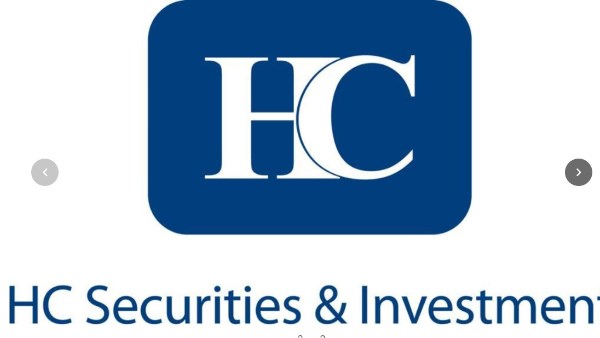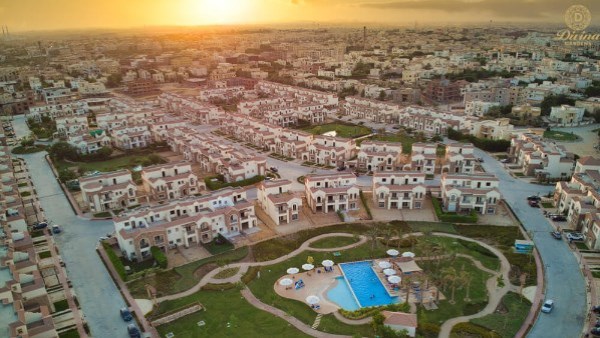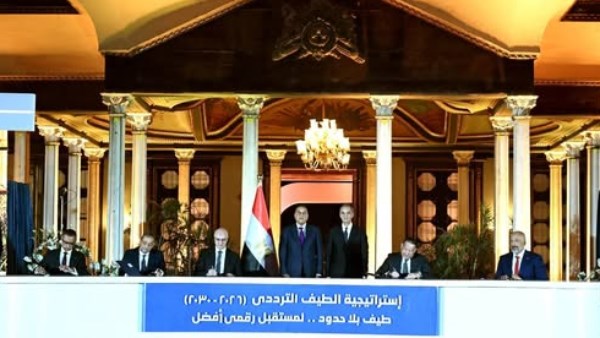
here are already signs that some of the city’s early moves are working
Abu Dhabi Speeds Up Country Club Admissions to Lure Hedge Funds

Abu Dhabi officials are quietly orchestrating a fresh package of perks they hope will help propel the city up the ranks of the world’s biggest financial centers، from helping traders obtain coveted school admissions for their children to assisting them with securing memberships at country clubs.
While the city’s $1.5 trillion in sovereign wealth capital will continue to be the main draw for hedge fund managers making a beeline for Abu Dhabi، officials are formalizing a program that will offer incentives، including lifestyle support and visas، as part of its overall package for finance professionals moving to the region.
Luring hedge fund titans
The bet is that these perks، along with the city’s tax-free status، sunny weather and a time zone that allows workers to trade across Asian، European and US hours، will help it continue to lure hedge fund titans from New York، London، Hong Kong and Singapore.
“We are positioning ourselves globally by benchmarking against the likes of Hong Kong and Singapore right now،” said Arvind Ramamurthy، who leads market development at the Abu Dhabi Global Market، the emirate’s financial free-zone. “In the long-term، we want to be compared with London and New York.”
There are already signs that some of the city’s early moves are working: Brevan Howard Asset Management now manages more money from the emirate than it does anywhere else on the planet. Goldman Sachs Group Inc.، Rothschild & Co. and Morgan Stanley are among the global financial firms opening up offices in Abu Dhabi.
The financial center had 1،825 operational entities as of the end of last year، up by a third from 2022. ADGM has said it’s been the fastest-growing financial center in the region for two consecutive years.
“We’re connecting people to not just a pool of capital but are providing them a place to call their home،” Ramamurthy said. “We have quality capital.”
Finance hub
Neighboring Dubai — long considered the Middle East’s de facto business and finance hub — offers similar advantages. Like Abu Dhabi، Dubai’s financial free-zone managed to draw in the hedge fund crowd through incentives including reduced licensing fees.
Izzy Englander’s Millennium Management set up there recently and now has a staff of more than 70، according to a person familiar with the matter، who asked not to be identified discussing non-public information.
Over the next year، Balyasny Asset Management aims to double its 12-person workforce in Dubai، another person familiar with the matter said. The fund already has big name hires making the move to the city، including consumer-focused equities portfolio manager Marco Minoli.
Lengthy Waiting Lists
But Dubai’s success has come at a cost. Waiting lists for schools and social clubs in the city run long; reservations at some restaurants can take weeks and key roads are routinely jammed. One executive recently complained it can take an hour during rush hour to exit the parking lots in the financial district. That’s likely to get worse — policymakers predict Dubai’s population will surge to 5.8 million in 2040 from over 3.5 million currently.
In contrast، streets and malls in Abu Dhabi are relatively less busy. Restaurants are starting to fill up، though reservations are easier to come by — for now. That’s why city officials are looking to seize this moment to offer up a fresh package of lifestyle perks in the hopes of luring more financiers to their ranks.
Brevan Howard’s decision to turn Abu Dhabi into its biggest risk-taking center is one of the clearest signs yet of the city’s growing heft. The macro-trading investment firm now runs about $10 billion from the emirate’s international financial free-zone and it has grown its local team to more than 80 staffers.
The firm’s co-founder، billionaire Alan Howard، has predicted Abu Dhabi could become a global financial center.
“You can see the BOJ beginning of the day and at the end of the day you can see the Fed،” Howard said in a rare public appearance late last year. “So that is an incredible advantage of Abu Dhabi and because of that we also need an execution desk here.”
Welcoming the Rich
In addition to the favorable time zone and year-round sunshine that have drawn a plethora of traders to the region، the UAE is also one of few countries around the world that welcomes the rich. That’s a change of pace from other nations، where billionaires often find themselves under scrutiny.
Case in point: Britain is overhauling its system of preferential tax treatment for wealthy foreigners، a move aimed at multibillionaires but one that could potentially ensnare mid-level bankers too. That could well pave the way for a further influx into the United Arab Emirates، which doesn’t tax personal income or capital gains.
“Hedge fund managers resent the vilification of capitalism، reckless government spending and rising taxes in New York and London،” said Andrew Beer، managing member of DBi، a New York-based investment firm. “By comparison، Dubai and Abu Dhabi look like giant، sunny welcome mats.”
Another element the city likes to promote is a relatively low rate of crime. One recent arrival، an executive who helps raise capital for clients including hedge funds، said he never locks his home. Fans of high-end watches can wear their Rolexes and walk through the city without fear of getting mugged، said another.
Policy Tweak
A key policy tweak is also helping both Dubai and Abu Dhabi.
During the pandemic، the UAE started to break away from a decades-old economic model that linked residency to employment. In the past، expatriates — who make up 90% of the UAE’s population — have had to leave when their jobs ended.
At the height of the global financial crisis، for instance، reports abounded of residents abandoning their luxury cars at Dubai’s airport to head home. A decade later، Dubai reported the steepest population decline in the Gulf as expatriates were forced to leave amid the economic upheaval wrought by the pandemic.
Officials wanted the country to shed this reputation of transience، and started to widen the eligibility net for 10-year ‘golden’ visas، which can now be obtained by means including property purchases. That is prompting residents to consider staying longer.
Take Mitesh Parikh: In 2018 he became one of first hedge fund traders to move to Dubai when he launched his own firm. He later merged the company with Schonfeld Strategic Advisors.
He had always planned to move back to London in a few years، but Parikh is now planning to stay in Dubai. Meanwhile، Schonfeld — where he co-heads the macro and fixed income trading business — has expanded to 28 people in the city.
“The opportunity set is too good to miss،” according to Austen Smart، who’s managing director at Tighe international، which helps financial firms recruit executives in the six-nation Gulf Cooperation Council. “Singapore and Hong Kong’s loss is the GCC’s gain.”





-1120252475029447.jpg)















